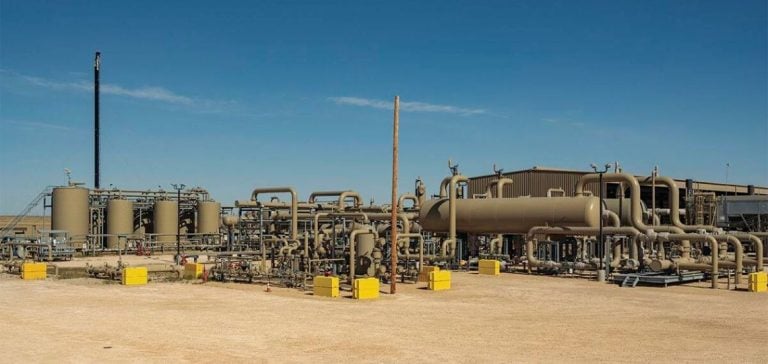The growing importance of artificial intelligence (AI) in various industrial sectors raises crucial questions about the energy sources needed to power this technological revolution.
In this context, Chevron CEO Michael Wirth criticizes the Biden administration’s natural gas policies, which he sees as essential to meeting AI’s growing energy needs.
Wirth points out that natural gas, particularly that extracted from the Permian Basin, plays a fundamental role in the energy transition and the reduction of carbon emissions.
Wirth expresses his concerns at the Gastech conference in Houston, where he advocates the use of low-carbon gas over coal to meet AI’s energy demands.
He asserts that “the advance of AI will depend not only on the design labs of Silicon Valley, but also on the gas fields of the Permian Basin.”
This basin, which spans Texas and New Mexico, is the largest oil field in the United States and accounts for 15% of national gas production.
This dependence on natural gas raises strategic issues for the American energy industry.
The implications of energy policies
Wirth is also critical of the Biden administration’s decision to suspend liquefied natural gas (LNG) exports, a move he sees as a political priority at the expense of economic progress.
In January, President Biden announced a pause on approvals for LNG export projects, a move that was welcomed by environmental activists, but could delay crucial decisions until after the November elections.
Wirth argues that the moratorium could lead to higher energy costs, threaten supply reliability and slow the transition from coal to gas, which could paradoxically increase carbon emissions.
He states, “Instead of imposing a moratorium on LNG exports, the administration should stop the attacks on natural gas.”
This statement highlights the tension between climate goals and growing energy needs, particularly in a context where AI requires robust and reliable energy infrastructure.
The role of natural gas in decarbonation
Wirth highlights the role of natural gas in reducing global carbon emissions.
He cites data from the International Energy Agency (IEA), which attributes more than a third of global greenhouse gas emissions in 2022 to coal combustion.
In his view, the switch from coal to gas could constitute “the most significant carbon reduction initiative in history.”
This statement underlines the strategic importance of natural gas in the fight against climate change, while calling for a stable and predictable energy policy.
It proposes three pillars for a balanced energy future: political support for gas as the key to a low-carbon future, recognition of the progress made in deploying new gas technologies and solutions, and understanding that the energy transition requires unprecedented innovation and collaboration.
These elements are crucial to ensuring that natural gas remains a reliable source of energy in a decarbonizing world.
Perspectives on the future of energy
Wirth’s statements underline a wider debate on how energy policies can support or hinder the transition to more sustainable energy sources.
As technology companies continue to invest heavily in AI, energy demand will only increase.
Policymakers must therefore navigate between economic and environmental imperatives, taking into account the realities of the energy market.
The need for a balanced approach is more pressing than ever.
Energy companies such as Chevron are calling for greater recognition of the role of natural gas in the energy transition.
By integrating innovative solutions and fostering constructive dialogue between stakeholders, it is possible to create a framework that supports both economic growth and decarbonization objectives.
The issues raised by Wirth and other industry leaders highlight the complexity of today’s energy challenges.
As the world moves towards a greener economy, the way energy policies are formulated and implemented will have a significant impact on companies’ ability to meet future energy needs while respecting climate commitments.






















